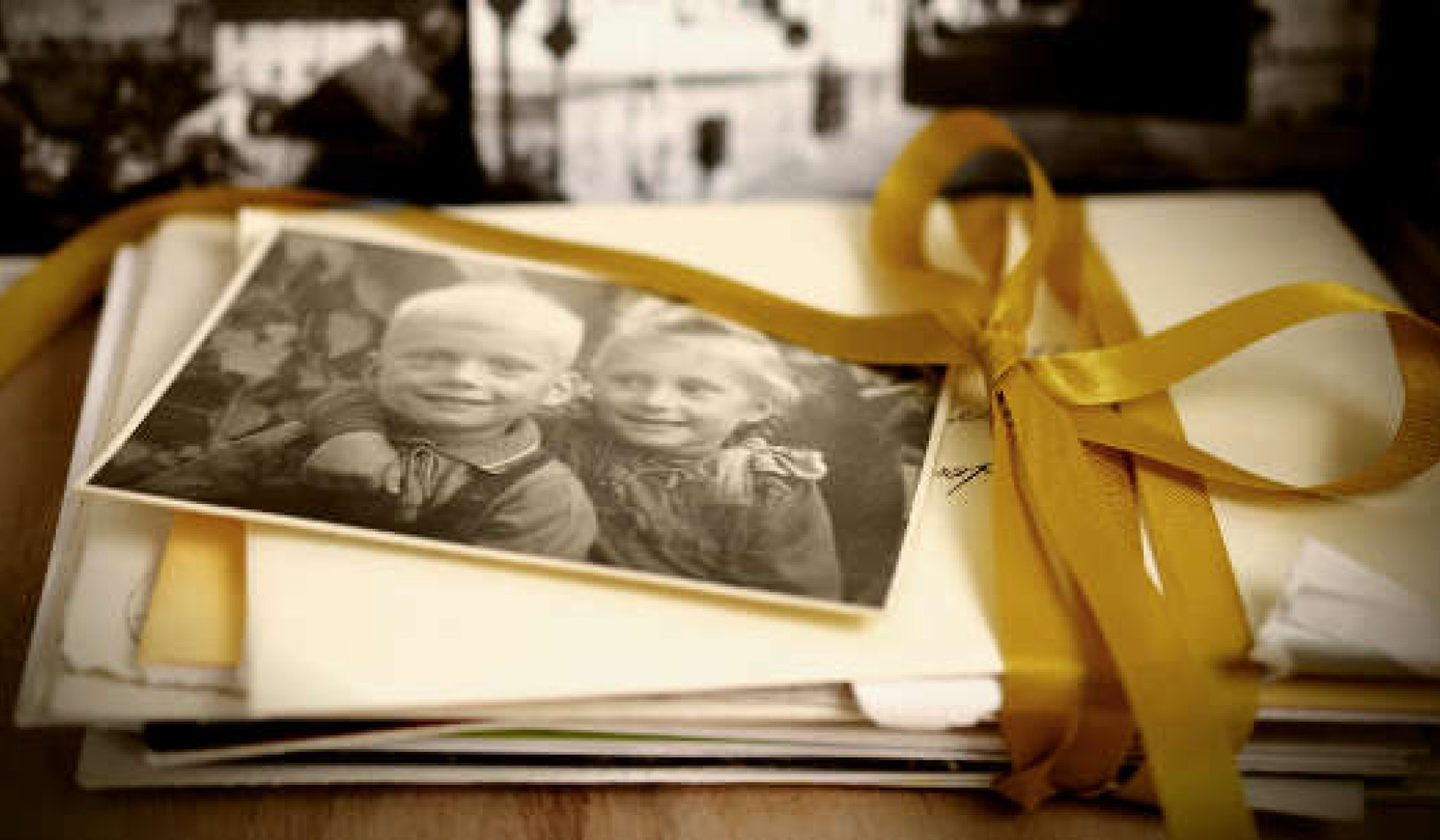
“Nothing that happens to us, even the most terrible shock,
is unusable, and everything has somehow to be built
into the fabric of the personality.”
— May Sarton
I received a note from Matthew “Goldie” Goldston, who wrote to tell me he had kept a diary during his stint as a marine in Afghanistan. Shortly afterward, Goldie connected me to two former marines who served with him — Jeremy Lattimer and Todd Nicely. All three joined the service inspired by their idealism. “I was in high school when the twin towers fell,” Jeremy explained over the phone. “I knew war was coming, and I wanted to be a part of serving our country.”
“Yeah,” acknowledged Goldie during our first interview at a diner near Luke Air Force Base. “I wanted to serve. The marines were known to be the biggest challenge, and I wanted a challenge. I wanted to make a difference — especially after 9-11.”
It would be a year before Sgt. Matthew Goldston would feel comfortable enough to share his tattered green war journal with me. I am grateful he did. From his pages:
It is the first week and we are on patrol and an IED goes off — followed by PRK machine gun fire. The number of Taliban is unknown. They are in a tree line on the other side of the canal. Gunfire is being exchanged here and sounds like people getting change from a cash register. At least no one was hurt today.
The daily firefights took a weighty toll on the mental health of these marines. “Every time you are in a firefight there is fear and an extreme adrenaline rush,” Jeremy added pensively. “It causes terrible anxiety — especially as you put on your gear. When you go out to fight, you actually put your feelings on hold and just go through it. But beforehand the anxiety makes you sick to your stomach.”
Writing Your Way Out of Darkness
“How did I cope with it all? Quite a bit gets buried inside you. And you don’t talk about it,” said Goldie. “But in Afghanistan I did keep a diary. The guys can tell you. Some guys used music. I used the writing. The writing helped.” Suddenly Goldie’s smile resurfaced. “Yeah. It helped a lot. If you can simply write your story or your thoughts and get it out of you, it helps relieve the stress and anxiety.
“I wanted to talk with you because I wanted others to know that when you are out there, writing can help. I still struggle with PTSD...with all of it.” He pointed over his shoulder. “I am still looking for the enemy. But I can tell you, when I was out there — in the middle of a war — the writing helped take the unseen monkey off my back.”
News reports claim that eighteen to twenty-two veterans choose to end their lives each day. Many vets are unable to overcome their traumatic memories of war. They cannot see a future. Given what we know about the power of writing to heal, it may well be that Goldie’s journal during his deployment kept him sane — and perhaps alive.
If You Can’t Write, Then Tell
While he no longer keeps a journal, Goldie Goldston and his friends are sharing their stories and working to heal from their war experiences. While in Phoenix, Goldie volunteered with the Military Assistance Mission, sharing his struggle with PTSD with fellow veterans and encouraging them to seek help. After retirement he completed training and is working as a welder in Missouri. He confesses that his PTSD remains an ongoing struggle.
Upon his return to the states, Jeremy Lattimer received the Bronze Star for his actions in Afghanistan. He underwent treatment at Walter Reed National Military Medical Center for the TBIs (traumatic brain injuries) sustained during combat in Iraq and Afghanistan. He has returned to school to study history.
Similar to writing our stories, sharing our stories holds the same promise of healing us — and connecting us. If you don’t want to write, if you can’t write, please tell your stories. This process, too, will change you.
Keys for Writing through Trauma
Based on the stories told by heroic veterans as well as from the countless other stories shared for this book, I have put together some key characteristics of writing to heal through trauma. This kind of writing does the following.
It Opens Us Up
Often creative writing students take online classes so that they can hide their identities. One student, Liza, admitted as much to me. She wrote a terrifying story about being beaten and tortured by a lover. When I finished reading it, I called her immediately. When we talked, she assured me I did not need to call 911. “This happened years ago, but I needed to get that story out of me,” she explained. “This class seemed like a safe place — where no one would know me — and I could share this horrible experience.”
Time and again researchers have reported that survivors of suicide, bullying, rape, sexual abuse, or other traumas feel it is unacceptable to talk about these experiences. We fear embarrassment or disapproval if we open up about these charged topics.
Sadly, many of us bury these stories inside — and pay the price for it. Barbara hid the story of her rape for more than two decades. When I first interviewed Goldie, he assured me that talking about war was next to impossible. “It took me a long time to figure out that you need to get your story out. I still struggle with it.”
If we keep our stories inside, compressed pain will cause our immune systems to struggle under the weight of the pressure. This increases our chances of both physical and psychological illness. A significant number of studies have demonstrated that people who opened up and “wrote about their deepest thoughts and feelings surrounding traumatic experiences” improved their health as witnessed by “heightened immune function.”
While it may prove difficult to write about personal upheavals, and you should avoid writing too soon after an event, later the physical and emotional payoff is profound.
It Goes Deep in Search of Understanding
Recently I sat in a West Coast writing workshop, where I met quiet, beautiful, chestnut-haired Jessica Brown. Her story cut deep and would help her make sense of an experience that had caused her and her husband immeasurable pain.
She had undergone therapy and come to accept herself as an alcoholic who had cheated on her husband. She had made important strides in rebuilding her life by working on her marriage and starting her own fulfilling business, a small yoga studio near the coast.
But Jessica also realized she had a story she needed to tell, and she wanted to come to grips with this difficult period in her life by writing it, hoping to turn it into a narrative she could move past and eventually share with others.
It Uses Words to Heal
If we want to write to heal, our words matter — especially our positive words. I witnessed this week after week at the veterans’ writing group. While Sienna had lost some of her mental processes due to an overdose of anesthesia during a regular surgery, she eventually moved past her painful journal writings and discovered there was great value in what she called “positive writing.” She would write about “hope” or make lists of “everything I am thankful for,” and her outlook improved dramatically.
Initially Barbara Lee was not too receptive to positive writing. Instead she toyed with various metaphors to create her poems and simultaneously explore who she was. At first her metaphors proved gruesome, even shocking. She described herself as “a bloodless cadaver... spread-eagled,” and in “Wasted Potential” she viewed herself as “withered, dark misshaped fruit.” But in time, Barbara was able to find words that would help her heal.
It Embraces the Writing Process
In one of my creative writing classes, Katie wrote about arriving home one day with hot pepperoni pizzas and sticky sodas that had leaked all over her car. Hands full, she banged on the door with her arms, but her husband failed to answer. Surprised, she kicked the door open with her high heels, yelling, “Josh! Where are you?”
Later, when she saw the note on the kitchen counter, she was stunned into silence. After eighteen years of marriage, Josh had left her and their children.
In class, week by week, Katie inched forward with a story that explored her inner turmoil as she tried to understand why her husband had walked out, leaving her to manage their three children, their two dogs, and their home. As she wrote, bits of painful experiences surfaced in her memory.
In telling the story she needed to tell, Katie began to unravel the knot in her stomach. Slowly she came to grips with a new understanding: her husband was trapped in serious depression and needed to get out from under the weight of his family.
When Katie started my fiction writing class, she said, “I want to write a bestseller.” As the weeks passed, her story grew into a novel. As the semesters passed, Katie grew and changed. When she completed her certificate in the creative writing program, she wrote to me, “I came to the college to write a bestseller. But I leave here happy to have an understanding of a difficult period in my life. I am better for having done this.” In the end she realized she was writing to survive the pain of losing her marriage, and she has done exactly that.
If a story is intended for publication, by all means publish it. But know that the process of writing to understand ourselves, of writing to heal, or writing to grow and become all we can, is a noble endeavor of its own.
Your personal writing can heal, grow,
and transform your life.
Give your words permission to change you.
©2017 by Sandra Marinella. All Rights Reserved.
Reprinted with permission of New World Library, Novato, CA.
www.newworldlibrary.com or 800-972-6657 ext. 52.
Article Source
The Story You Need to Tell: Writing to Heal from Trauma, Illness, or Loss
by Sandra Marinella
 A practical and inspiring guide to transformational personal storytelling, The Story You Need to Tell is the product of Sandra Marinella’s pioneering work with veterans and cancer patients, her years of teaching writing, and her research into its profound healing properties. Each of the techniques, prompts, and exercises she presents helps us “to unravel the knot inside and to make sense of loss.”
A practical and inspiring guide to transformational personal storytelling, The Story You Need to Tell is the product of Sandra Marinella’s pioneering work with veterans and cancer patients, her years of teaching writing, and her research into its profound healing properties. Each of the techniques, prompts, and exercises she presents helps us “to unravel the knot inside and to make sense of loss.”
Click here for more info and/or to order this book.
About the Author
 Writing teacher Sandra Marinella, MA, MEd, has taught thousands of students and fellow educators and presented hundreds of workshops to veterans, educators, and cancer patients. Visit her website at http://storyyoutell.com/ where you can write or tell your story, discover life-changing stories and learn the power of reworking and editing your personal life stories with the goal of finding hope, inspiration, and a better way of living.
Writing teacher Sandra Marinella, MA, MEd, has taught thousands of students and fellow educators and presented hundreds of workshops to veterans, educators, and cancer patients. Visit her website at http://storyyoutell.com/ where you can write or tell your story, discover life-changing stories and learn the power of reworking and editing your personal life stories with the goal of finding hope, inspiration, and a better way of living.



























